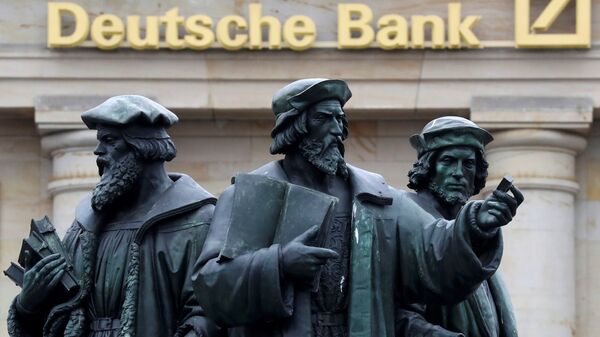The German economy is facing a deep recession as a registered summer slump in exports shows signs of persisting into the autumn, according to a report by the country’s central bank on Monday.
The downturn in the second quarter of the year is likely to continue in the third quarter, with Europe’s powerhouse economy teetering on the brink of a technical recession.
GDP has slumped 0.1 percent in the three months to June and Germany’s central bank is expecting a similar drop in the three months to September.
The Bundesbank report said:
“The overall economic performance could decline slightly once again. Central to this is the ongoing downturn in the industry. Future developments will hinge on how long the present economic dichotomy lasts and which direction it takes once it dissolves".
"As things currently stand, it is unclear whether exports and, by extension, the industry will regain its footing before the domestic economy becomes more severely affected".
The Bundesbank blamed Brexit and the US-China trade war as driving factors in plummeting orders for cars and industrial equipment that previously sustained the flourishing German economy.
Exports “were down substantially” as Brexit preparation plans meant companies stocked up their inventories in the first quarter.
The Guardian quoted analysts at Deutsche Bank admitting even downgraded figures could expect further downward revisions, adding:
“Given the increasingly fragile state of the global economy, the realisation of one or more risks could easily push the economy into a completely different scenario".
The economic slump comes at a bad time for Chancellor Angela Merkel, threatening to plunge her fragile coalition government into chaos, should the junior coalition partner Social Democratic Party pull its support.
Germany's grand coalition is increasingly wobbly, with Merkel currently relying on the support of the coalition comprising her own conservative CDU, its CSU sister party from Bavaria and the centre-left SPD.
The Social Democratic Party is currently awaiting the outcome of its leadership race, amid slumping public support for the party. The 2019 Social Democratic Party of Germany leadership election will take place in the autumn of 2019.
Deutsche Bank chief economist Stefan Schneider said:
“The fog over the coalition’s future is unlikely to lift before the end of October when the SPD will present the result of the membership ballot on its new leader. We think that Merkel’s government will become even more fragile".


